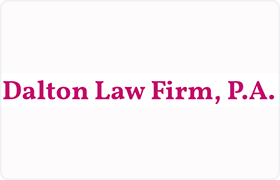Palm Beach Gardens Eminent Domain Lawyer, Florida
Sponsored Law Firm
-
 x
x

Click For More Info:
-
Dalton Law Firm, P.A.
101 NE 3rd Avenue Suite 1500 Fort Lauderdale, FL 33301» view mapReal Estate Representation You Deserve
We are here to protect your rights and lead you toward a positive solution in your legal matter.
754-218-5305
William Patrick Doney
Commercial Real Estate, Eminent Domain, Federal Trial Practice, State and Local
Status: In Good Standing
Elaine Johnson James
Eminent Domain, State and Local, Trusts, Family Law
Status: In Good Standing Licensed: 36 Years
John Wesley Little
Eminent Domain, Lawsuit & Dispute, Federal Appellate Practice, Estate Planning
Status: In Good Standing Licensed: 42 Years
 Natasha Dalton Fort Lauderdale, FL
Natasha Dalton Fort Lauderdale, FL
